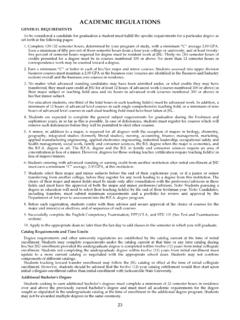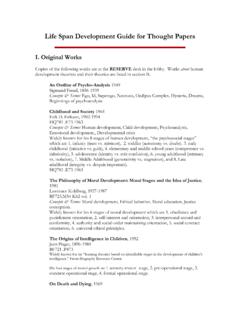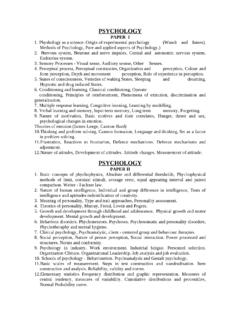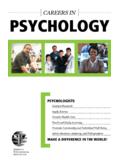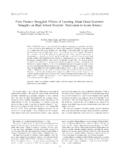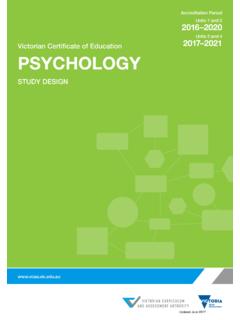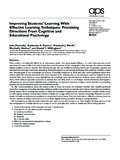Transcription of Definition of Science - Jacksonville State University
1 Chapter 2 - CF1 CHAPTER 2 Definition of of Understanding of ScienceA. Research to understand (pure research)B. Research to solve a particular problem (applied research)C. Dispensing solutions (practitioner / technologist) III. Lexical Definitions of Science IV. Activities of a phenomenon1. type of activity2. type of explanationB. casual manipulation of empirical variables1. type of activity2. type of explanationC. specification of functional relationships1. type of activity2. type of of coherent explanatory system1.
2 Type of activity2. type of of a general and integrated mechanism of prediction (law)1. type of activity2. type of explanation V. Assumptions of Science VI. Proscriptions of ScienceVII. Misconceptions About Driving ScienceChapter 2 - CF2 : The Mechanism Underlying the Success ofScienceA. The Structure of Scientific Revolutions role for history2. the route to normal science3the nature of normal science4. normal Science as puzzle solving5. the priority of paradigms6. anomaly and the emergence of scientific discovery7.
3 Crisis and the emergence of scientific revolutions8. the response to crisis9. the nature and necessity of scientific revolutions as changes of world view invisibility of revolutions resolution of revolutions 13. progress through revolution Case history of a scientific revolutionChapter 2 - CF3 CHAPTER 2 Definition of ScienceThis section is to give you more information about Science so you can knowmore about doing and understanding those things which make you ethical andprosperous. In the previous section we saw that Science is the word for the humanactivity which produces being ethical and prosperous.
4 This section is a morecomplete elaboration of the process of Science . This section is provided becausethe more you know of the tool Science , the better you can use it to accomplishyour ends. This systematic elaboration of the process can be accomplished by wayof elaborating the Definition of Science . Science is very much more complex than pat definitions which you canmemorize and then put the issue away. The scientific method is what has evolvedto help people tell the truth and to understand the world.
5 The followingdefinitions are attempts at applying words to what is done so that you can gainthe knowledge through vicarious experience rather than actual experience (thehard way). I. Products of which are known to be trueEmpiricalReliableMultiple Converging EvidenceConsensually ValidatedOperationally/functionally describedExplicitOntologically ValidReferential CorrespondenceTestableMinimal ErrorSystematicComprehendibleChapter 2 - CF4B. UnderstandingKnowing the relationship of facts to each other so that you can:DescribePredictControlSynthesizeExpl ainTruthfulExplicitTestableMinimal ErrorComprehendibleSystematic or Principled II.
6 Goals of ScienceThe process of Science typically has one of three Research to Understand (pure research)Pure research is concerned with developing valid, complete, and coherentdescriptions and explanations. It is interested in organizing data into the mostgeneral and parsimonious laws or qualified statements of uniformity. Theemphasis is on comprehension or understanding. It is motivated by curiosity andinquisitiveness about natural phenomena. It is interested in data andrelationships for their own sake.
7 Most often the details of the research areconsidered arbitrary; the fundamental process is the focus. Pigeons pecking forfood is the arbitrary, irrelevant aspect; behavior under the control of reinforcers isthe important point. Doing this type of research is like learning a language; onceit is known, all things can be done. Benjamin Franklin was engaged in pureresearch when he tried to compare lightening with static electricity generated byfeet rubbing on a rug. He did not do it to find a better way to illuminatePhiladelphia at night nor how to transmit TV pictures.
8 He just wanted to know. It is interesting to note that 200 years later, few Americans wouldsurvive a single year if electricity suddenly disappeared altogether. The practicalimpact of his indulgence of his curiosity is almost unimaginable. His discoveriesare all the more impressive considering that his only reason was to add to theknowledge base. He did not do it for the money. He would not have had an answerto a critic who asked just how will this help the human condition and if you don'tknow, then you should do something more practical.
9 Studying the nature of cellChapter 2 - CF5growth would be pure research. Trying to describe and understand thedeterminants of matching would be pure research. B. Research to Solve a Particular Problem (applied research)Applied research is concerned with the discovery of solutions to practicalproblems and places its emphasis upon those factual data which have moreimmediate utility or application. The emphasis is on control. Applied researchis like learning phrases needed to accomplish a variety of specific things in aforeign language without really understanding the whole language.
10 The searchfor a cure for cancer is an example of applied research; discovering a solution formanic depression is an example of applied research. Solutions (practitioner / technologist)Practitioners are concerned with the direct application of principles andtheories from one or more fields of Science for the purpose of dispensing solutionsto individual human problems rather than being concerned with the discoveryand organization of knowledge. Strictly speaking, a practitioner is not ascientist, but that is not to say they are necessarily unscientific.




